Chuck Prophet - Interview
by Anthony Strutt
published: 1 / 6 / 2010
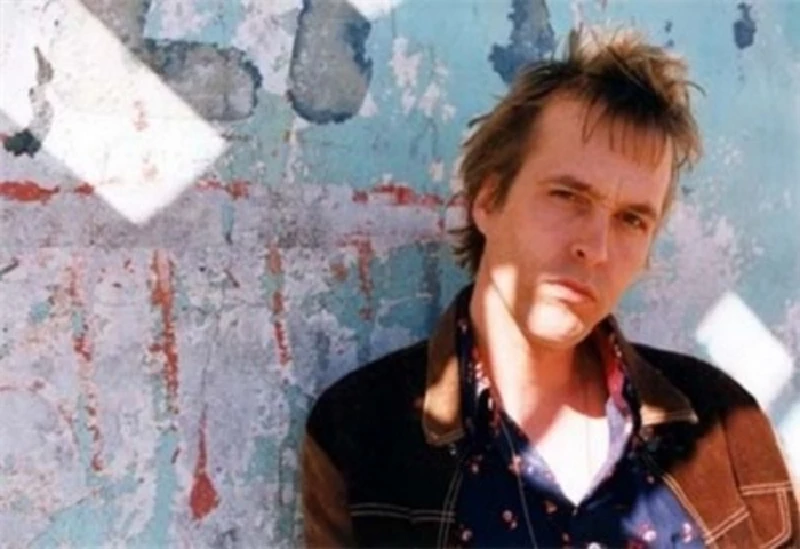
intro
Californian singer-songwriter Chuck Prophet talks to Anthony Strutt at a gig in London about his years with influential Americana outfit Green on Red and his recent solo record 'Dreaming Waylon's Dream', a track by track cover record of Waylon Jennings' 1975 album, 'Dreaming My Dreams'
Chuck Prophet was born on June 28th, 1963 and comes from California. For most of the 1980s and during the start of the 1990s he was the guitarist in the Los Angeles-based country rock band Green on Red. He appeared on six of their albums,'Gas Food Lodging (1985), 'The Killer Inside Me'(1987),'Here Come the Snakes (1988), 'This Time Around' (1989),'Scapegoats'(1991) and 'Too Much Fun'(1992). He continued to play in the group, remaining with singer Dan Stuart its only other regular member, after the group's "golden era" line-up which also featured Jack Waterston(bass), Chric Cacavas(keyboards) and Alex MacNicol(drums) disbanded in 1988. Prophet was involved in Green on Red's reformation shows in 2005 and 2006, but since 1990 has also maintained a solo career. His first solo album, 'Brother Aldo' has been followed by another ten albums, one of the latest of which is 'Dreaming Waylon's Dream', a track by track cover record of Waylon Jennings' 1975 album, 'Dreaming My Dreams'. Pennyblackmusic spoke to Chuck Prophet before a gig at the Borderline in London. PB: What made you pick up the guitar in the first place and when was that? I became aware of you because of Green on Red, but you weren't in the original line up or on their debut mini album, 'Two Bibles'. CP. No, I grew up in a town called Whittier, California, and, if you shook a tree, eight guitarists would fall out. It wasn't ever a matter of if was I going to play guitar. All of my friends played guitar. Most of us had guitars that our sisters had left behind and that's how I came to play mine. I was more into records and music than actually playing. I went to Hollywood because my sister was a bit of a hipster and I listened to records that her boyfriends had left behind. PB: You spent some of your youth in Los Angeles then? CP: Yeah. For me the music was the records. It was Bowie and the Stones, Creedence Clearwater and the Top 40. PBM: And LA had before that Love and the Doors. CP: Love had that single, 'Little Red Book'. I never knew anything about Love. It wasn't until later when I joined Green on Red. I was probably nineteen or twenty, I guess, and we were just playing white thrash rock 'n' roll. We did subscribe to all the idealisms of the 60s in a way. We would stretch out the songs but I wasn't influenced by the psychedelic music of the 60s. I didn't have Syd Barrett records, I wasn't exposed to any of that, but when I travelled the world I did buy lots of records of that kind which I did bring back with me. PB: Green on Red were thrown in with the whole Paisley Underground movement, but if anything really you probably were not anything to do with that, because as you have said you weren't influenced by the music of the 60s. CP: Probably. Chris Cacavas had unbridalled musicality and originality. Green on Red were more free form. It wasn't until the reunion in 2008 that I started to understand what Chris was doing. For me he was doing like colours and shapes and I couldn't figure out what it was. I think maybe my ears are bigger now. I can hear what he is doing now. The reason why people play country rock or alt.country is because it is easy. It is not easy to do convincing well, but when you do it well it shows. Yeah, it is like what Hank Williams said. To do country music, you have to be sincere and if you can fake that you got it made. PB: What attracted you to play a Telecaster because that has been your guitar of choice though all these years? CP: I have always been a Fender guy. I don't know why, There was a Fender place near where I lived. All the surf guys had a Stratocaster Jazz Masters. I had a Stratocaster that got stolen. When I joined Green on Red, I didn't have a guitar so they bought me one and we went to the shop I mentioned, William Music. They had this sign that said they did credit and so we went down there on a bus to pick out instruments. All they had were these cheap Telecasters and Stratocasters and I said, "That's fine. I will take it." That was about '84 and I have played that guitar ever since. It takes care of me. It knows all the songs. PB: Were you in any groups before Green on Red? CP: No, I was in bands when I was about twelve, but we didn't know anything. It wasn't till like '78/'79 when I went to this glam rock show in Hollywood. We went to this show to see this band called Quiet Riot, one of the last bands of glam in L.A. and it was no bigger then here at the Borderline. I was about fourteen. We got there and we had got the dates wrong. We stood outside the box office in the parking lot. We had driven all this way there and thought that, as we were already there, we would go and see whatever was on in the venue that night. I saw like four bands probably all inspired by the Knack or something like that and they were all great and we drove back and I said to the guys that I was with, "We could do that". Prior to that, I didn't think about being in a band or writing songs or anything that wasn't accessible. PB: Green on Red originally split in 1987. Why did you split then? CP: We had just run up to our limitations and it wasn't fun anymore, Phonogram gave us a lot of money and we made a really bombastic album and gave ourselves all the rope we needed to hang ourselves and we did. PB That was 'The Killer Inside Me' album, wasn't it? CP: Things had got really unhappy in the group, Dan Stuart felt in some ways that he had taken it as far as it could go. It was only a fluke that we bounced back and went onto make the other records that we made. That was when we found we could write songs and I could help out. We had a good run as a result. PB: The one thing that shocked me on hearing 'Brother Aldo', your first solo album when it came out in 1990, were your vocals. You have a great voice. Why did you not sing before? Did you think Dan Stuart was good enough as a singer? CP: Danny is great at everything. I saw Green on Red before I joined them, and it was hard to describe what I saw that night. It was amazing. It was really wild. Danny was doing this whole bigger then life thing. He had these narrative songs which at the time were really forward thinking and I just loved it. I never thought about going solo. I made that record and I was lucky someone gave me the money to make it and then we played some gigs to promote that album. Then another label phoned me up and I was able to make these records. PB: Is it easier writing for yourself than with Green on Red? CP: No, it's all hard at the same time. When it comes easy, it is all good too. It's amazing how you don't hit a wall. Danny and I got to the point where we could squeeze one out if needed. It probably wasn't all good. As you get older, you get harder on yourself. We used to have a joke in Green on Red. We said this in jest, but there is some truth in it. People asked us what came first, the music or the lyrics, and the answer is easy, the advance (Laughs). I am not sure where we stole that from. PB: Do you buy a lot or listen to a lot of music and whom do you like? CP.I really like this band called Art Brut, who are from London at the moment. PB: I am asking this because everyone branded Green on Red in with the Neil Young way of thinking, which I can understand. I can't really hear any other influences in there that I know of. CP: I really like 'Tonight's the Night'. I like guitar players that are singers like JJ Cale and Curtis Mayfield. PB: You recently covered on record Waylon Jennings and his whole 'Dreaming My Dreams' album. CP: Waylon was like an auteur. He made 'Dreaming My Dreams' within the country machine in '74, but he picked his own material and he used his house band. It was a minimal record, so I looked at that record and they way that it was done. It was the same way with Alex Chilton. The first time I saw him play he pulled up into a club this size. He had like a '68 guitar, pulled out his amp, got on stage, took off his shirt, put on his gig shirt, put the other shirt on his amp, played the gig and that showed me how it is done. PB: The Borderline has pretty much been your home here in London. CP: It holds about two hundred to three hundred punters. It's where I feel most comfortable. I like England as a whole, and Austin, New York, Seattle, places where going to gigs is deeply engrained in the lifestyle. That's what I like about England. People line up, go in, have a pint, heckle a bit. They know to go to gigs and that's a beautiful thing. They can be really rude, but they take the piss in a good way. They are more astute because they go to gigs a lot. PB: Are the audiences the same aboard? CP: They are more polite, but it is a difficult thing. I prefer to work in English-speaking countries where the banter is easier. PB; Why did the Green on Red reformation happen? Was that like a tribute to your drummer, Alex MacNicol? CP: Alex had died. The reunion came about a random way. There was a chap in Tucson that was having an anniversary and it was his dream to get Green on Red back together. This guy called us all seperately and we all said yes. We were suprised at how much fun it was and how easily it came together. Then all the same shit started to happen again and and then it was time to put it to bed. PB: Is everyone still friends? CP: Yeah. Danny and I in particular are still close. We remain like brothers. PB: Do you like the whole aspect of touring because you do it a lot? CP: What's not too like. As long as I have something good to read, that's about it. I like playing music with my friends. I play every gig as if it is my last. PB: What are your future plans? Are you going to be doing more touring and recording? CP: You never know. I really don't know. There is nothing on the deck,. PB: Is there anyone you would like still to work with that you haven't? CP : Yeah, I'm waiting for Dylan to call, I don't get it. He will have to get to me eventually (Laughs). That's cool though. I have got time. PB: Thank you for your time.
Band Links:-
https://www.facebook.com/chuckprophetofficial/http://www.chuckprophet.com/
https://twitter.com/ChuckProphet/
https://www.instagram.com/chuckprophet/
Picture Gallery:-
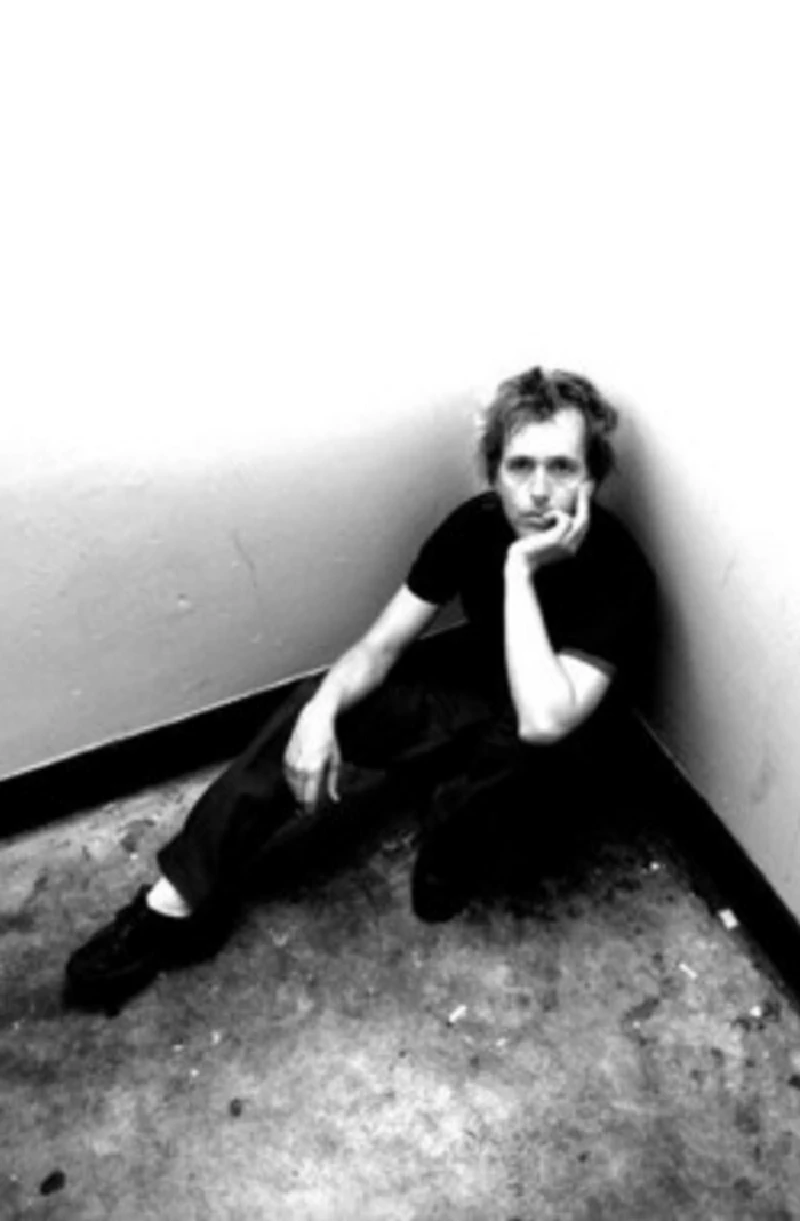
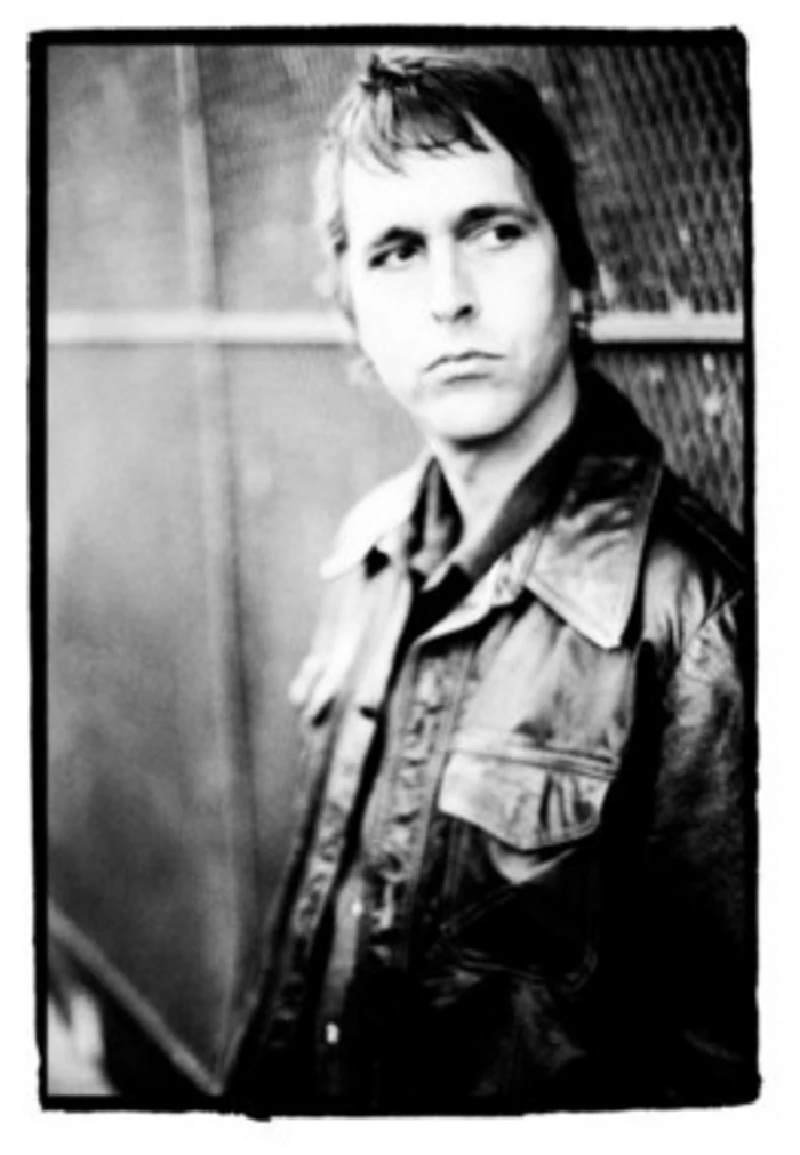
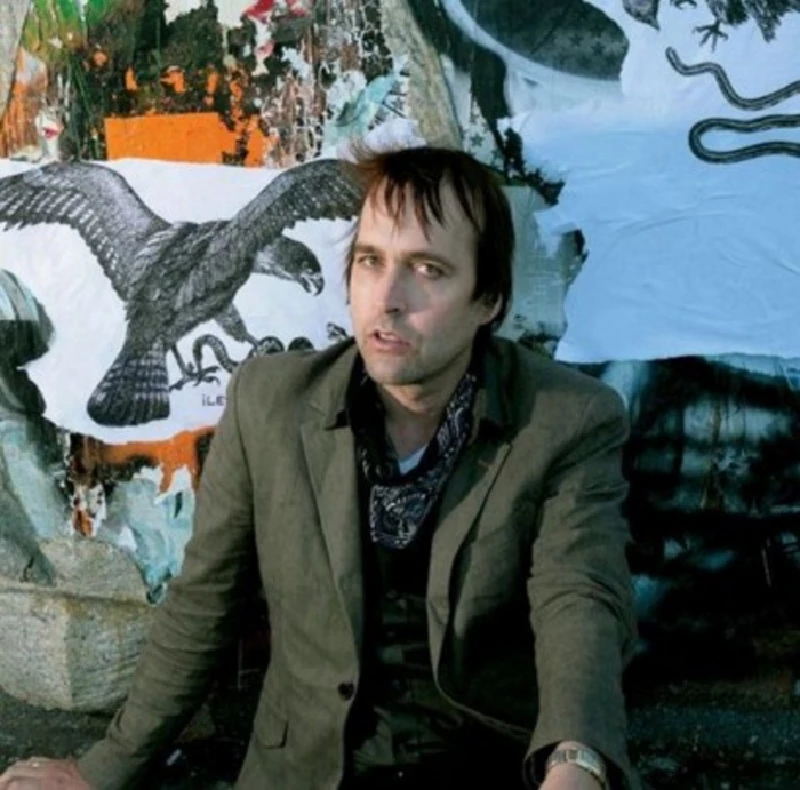
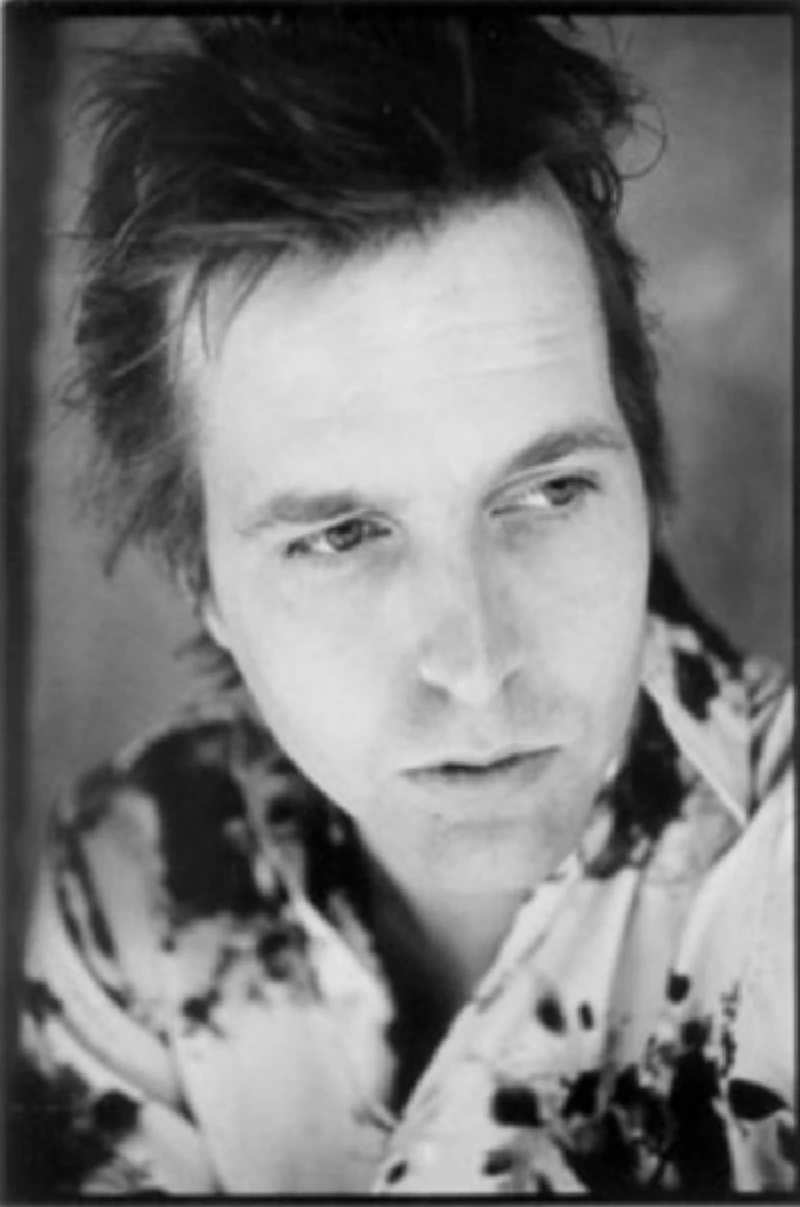
interviews |
|
Intervew (2012) |
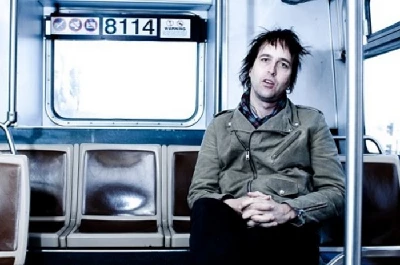
|
| Former Green on Red guitarist Chuck Prophet speaks to Anthony Strutt about his solo career, and his eleventh album, 'Temple Beautiful', which is about his home city of San Francisco |
live reviews |
|
Garage, London, 23/7/2011 |
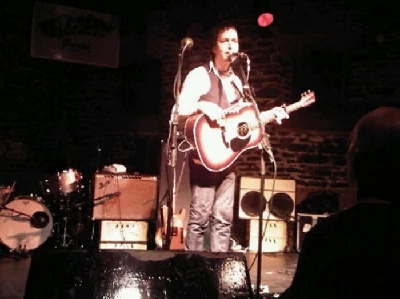
|
| Anthony Strutt watches former Green On Red guitarist Chuck Prophet and his new band the Spanish Bombs cover the whole of the Clash's 'London Calling' album in a fabulous night at the Borderline in London |
features |
|
Ten Songs That Made Me Love... (2017) |
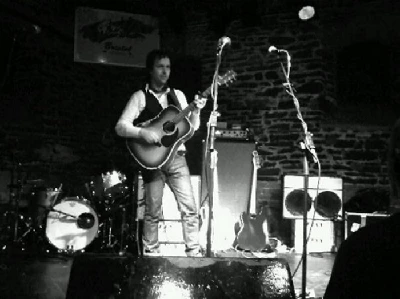
|
| In 'Ten Songs That Made Me Love...' Stephen Simkin reflects on ten of his favourite songs by Chuck Prophet. |
reviews |
|
Bobby Fuller Died for Your Sins (2017) |
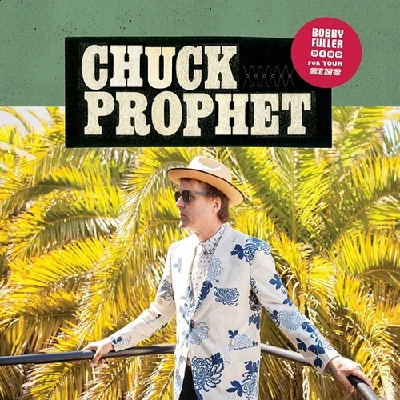
|
| Redemptive latest album from former Green On Red guitarist Chuck Prophet which proves to be one of the highlights of his extraordinary career |
| Temple Beautiful (2012) |
| Dreaming Waylon's Dreams (2010) |
| Let the Freedom Ring (2009) |
most viewed articles
current edition
Carl Ewens - David Bowie 1964 to 1982 On Track: Every Album, Every SongBathers - Photoscapes 1
Colin Blunstone - Thalia Hall, Chicago, 16/7/2025
John McKay - Interview
Armory Show - Interview with Richard Jobson
Visor Fest - Valencia, Spain, 26/9/2025...27/9/2025
Billie Eilish - O2 Arena, London, 10/7/2025
Bathers - Photoscapes 2
Editorial - July 2025
Sir Tim Rice - Interview
previous editions
Heavenly - P.U.N.K. Girl EPOasis - Oasis, Earl's Court, London, 1995
Trudie Myerscough-Harris - Interview
Pixies - Ten Songs That Made Me Love...
Simon Heavisides - Destiny Stopped Screaming: The Life and Times of Adrian Borland
Beautiful South - Ten Songs That Made Me Love...
Prolapse - Interview
Boomtown Rats - Ten Songs That Made Me Love....
Blues and Gospel Train - Manchester, 7th May 1964
Donovan - Ten Songs That Made Me Love...
most viewed reviews
current edition
Amy Macdonald - Is This What You've Been Waiting For?Sick Man of Europe - The Sick Man of Europe
Alice Cooper - The Revenge of Alice Cooper
Phew, Erika Kobayashi,, Dieter Moebius - Radium Girls
Lucy Spraggan - Other Sides of the Moon
Blueboy - 2
Cynthia Erivo - I Forgive You
Davey Woodward - Mumbo in the Jumbo
Lapsley - I'm a Hurricane, I'm a Woman In Love
Philip Jeays - Victoria
Pennyblackmusic Regular Contributors
Adrian Janes
Amanda J. Window
Andrew Twambley
Anthony Dhanendran
Benjamin Howarth
Cila Warncke
Daniel Cressey
Darren Aston
Dastardly
Dave Goodwin
Denzil Watson
Dominic B. Simpson
Eoghan Lyng
Fiona Hutchings
Harry Sherriff
Helen Tipping
Jamie Rowland
John Clarkson
Julie Cruickshank
Kimberly Bright
Lisa Torem
Maarten Schiethart